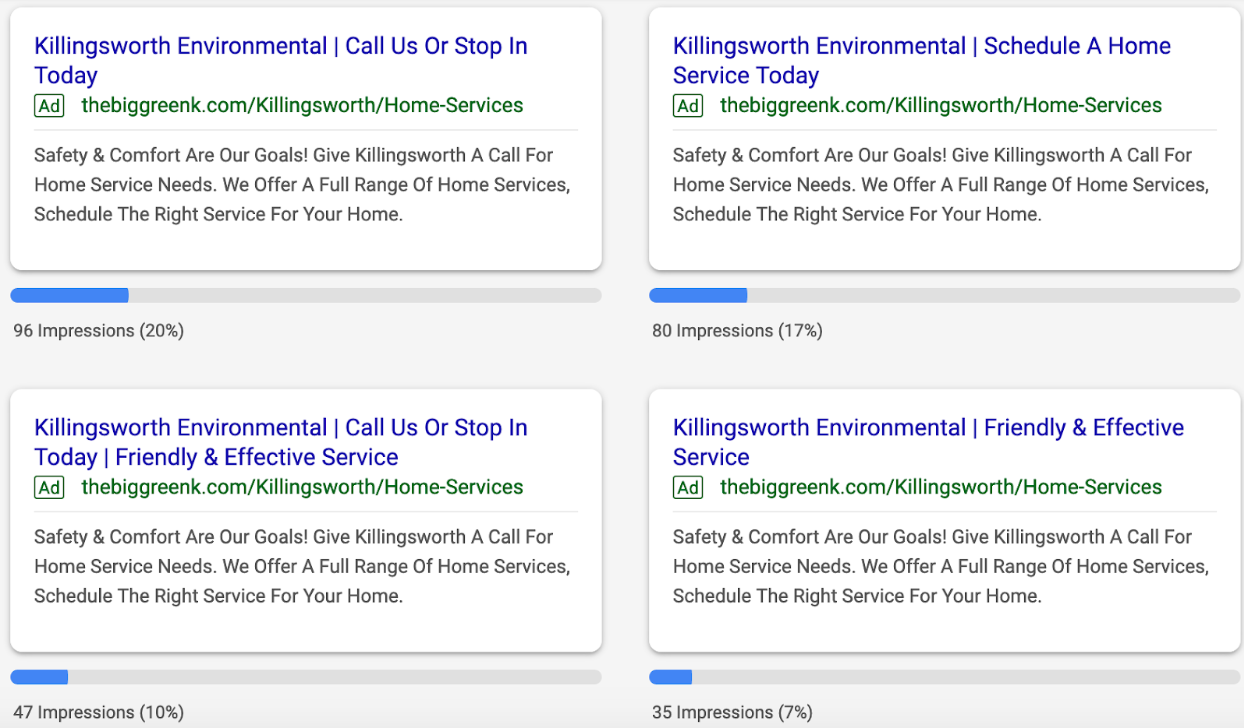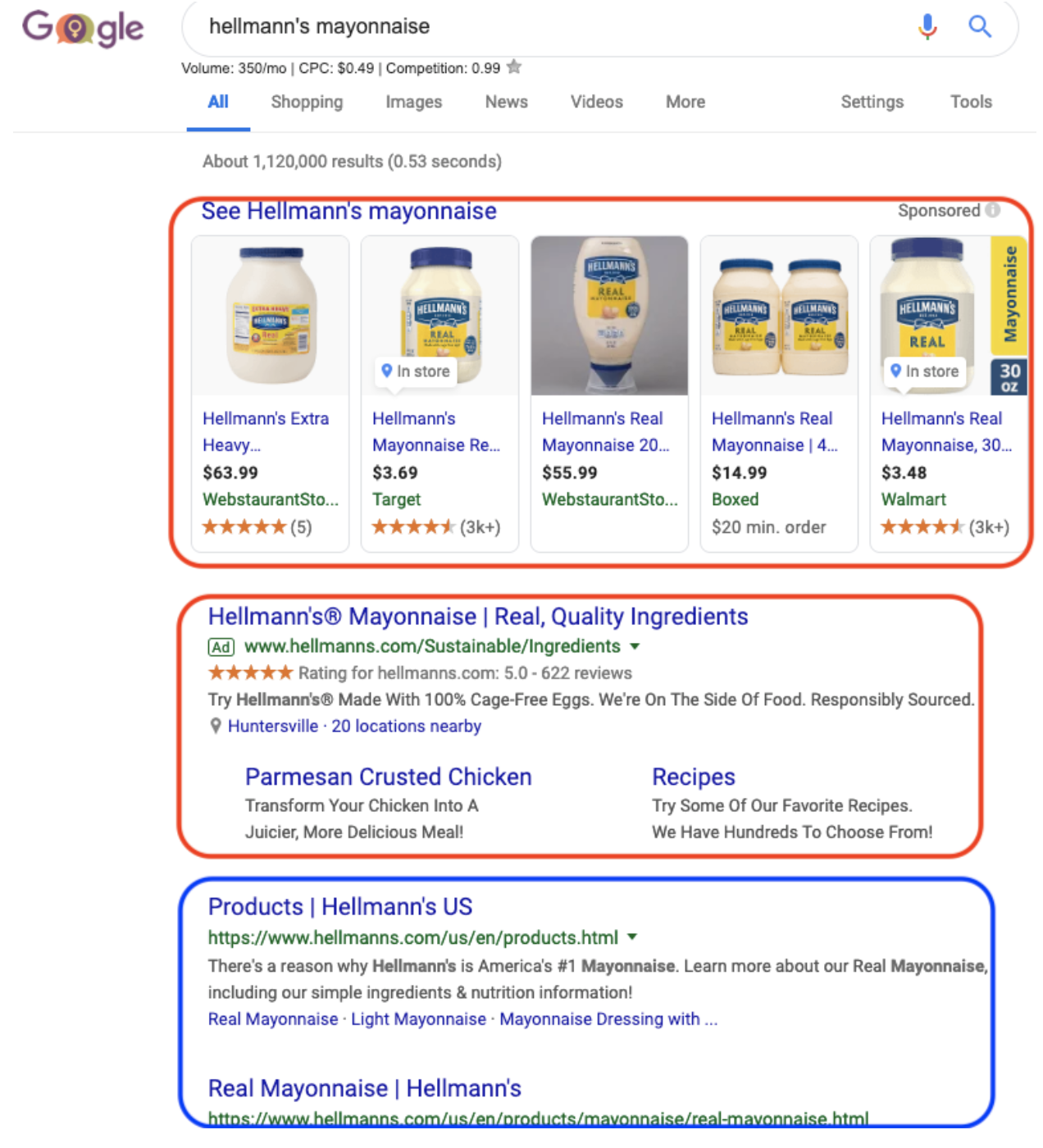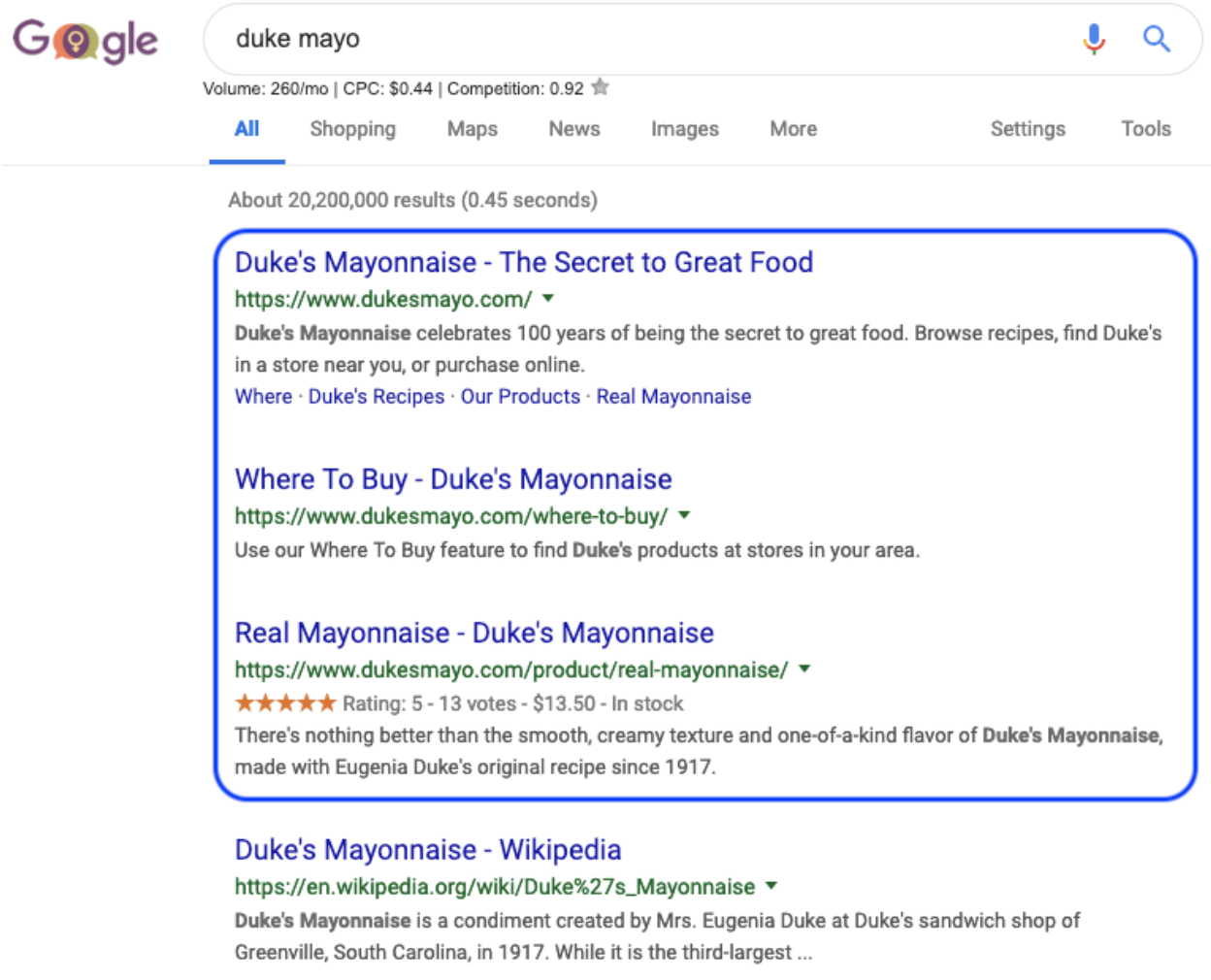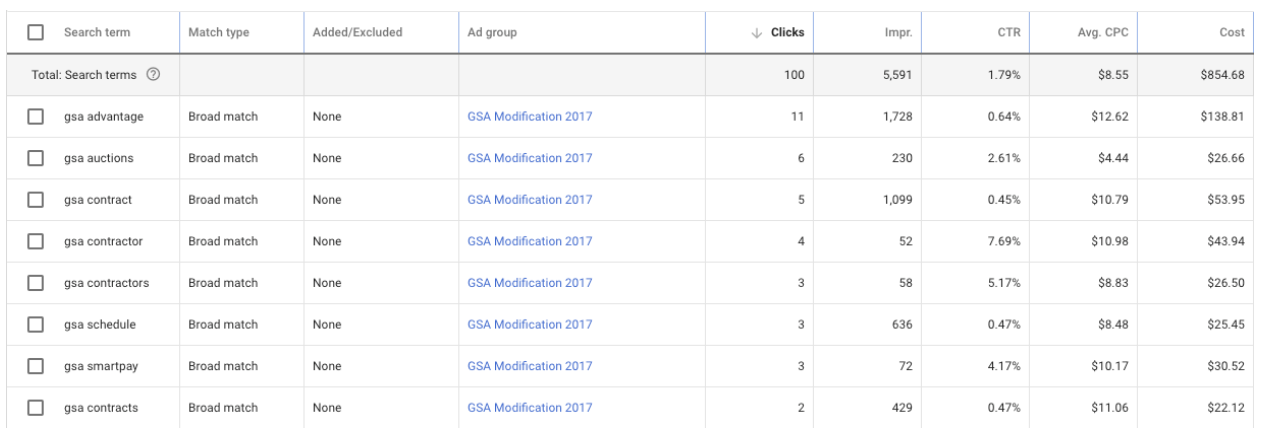Subscribe now and get the latest podcast releases delivered straight to your inbox.
So, you’re new to Google Ads and you have set up your first set of campaigns; from start to end.
With that feat, let me congratulate you!
Now comes plenty of emotion; feelings of accomplishment, anxiety, nervousness, and to some degree, FEAR.
Yes, I said fear.
Fear of not achieving your objectives, spending money inefficiently, not reaching the right audience, and more are all tied down to a foundational fear that you made some mistakes in your campaign setup.
And if it comes to light that you did make some mistakes, well guess what …
That means you’re just like the other 7.53 billion people on Earth … you’re human!
We all want to be the best human we can be and try our best to avoid mistakes, especially when it comes to one’s Google Ads campaigns.
From beginners all the way to management, I have seen first-hand many people make “rookie mistakes,”
Luckily, many of these are easy to fix and can be the foundations for successful campaigns. In this article, I will share seven of these common Google Ads rookie mistakes, along with how you can avoid them.
⚠️ Related: The Ultimate Google Ads Getting Started Guide (Ungated)
1. 100% Broad-Matched Keywords
This is how it starts off, you execute your in-depth keyword research and feel that you have the perfect batch of high-volume, relevant keywords that will not only drive clicks but ultimately conversions.
And who’s to say that you don’t?
The campaign runs for about a week or so and you're noticing the expected high volume of impressions, but you’re also noticing the inconsistency with cost per click (CPC) and click-through rate (CTR). Also, conversions are few and far between.
So, what in the heck is going on??

You decide to run a search query report audit and notice that you’re catching everything under the sea that’s mildly related to your targeted keywords. And then it hits you, everything’s in broad-match!
Keyword match types are a foundational key in having an efficient campaign. Unless you intentionally change the match types of keywords, they will be set to broad match.
Broad match types allow your ads to be triggered on a broad range of variations of your keywords; synonyms, possible misspellings, plural and singular forms, related searches, and other variations.
Although this is the default match type, this match type could have your ad showing up in very loosely related queries. It puts focus on quantity rather than quality. .
There are a few instances where broad match can be beneficial, but more than not, you want to make sure your keywords are in exact match, phrase match, or broad match modified.
The more specific you can get with your targeted keywords, from the beginning, the cheaper your CPC can be (due to increased relevance across ads and keywords), the higher your CTR can be, and ultimately the higher your conversion rate can be.
2. Minimal Use of Extensions
Most beginners are aware of the sitelink extension, which allow people to be taken to specific pages on your site.
It’s typically the most prevalent and most attention-grabbing extension that’s displayed, simply because it has the potential to take up the most space.

However, there are a plethora of ad extensions available for your use.
Ad extensions, in a nutshell, are features that allow extra business information to be shown with your ad and make specific actions easier to complete.
This information could be a phone e number, an address, store rating, or even more webpage links (such as the above sitelink extensions)
Below are a few benefits of implementing some popular extensions:
-
Sitelink extensions - Measure the clicks that go to specific site link pages on your website, which will allow you to learn more about customer preferences
-
Callout extensions - Allow you to promote particular offers to users (i.e. free shipping, 24/7 assistance)
-
Click-to-text extensions - allow users to send a text directly to a dedicated line. These are great for lead generation
-
Call extensions - allow users to call your business directly from the ad
-
Promotion extensions - allows you to highlight your current promotions and sales
-
Seller Ratings extensions - this is an automated extension that showcases a business’ rating, as long as the aggregate rating is a 3.5 or higher
So, as you can see, extensions are SUPER advantageous to your ads. And despite the visual and technical benefits that come with extensions, extensions are an intricate factor in overall Ad Rank as well.
Having the right combination of relevant ad extensions can enhance CTR, lower average CPC, and improve ad positioning
In essence, your ad can go from this …

to this …

I’d take the latter any day of the week!
My advice would be to create a template that breaks down each of the below possible extensions and fill out those extensions that are relevant to your campaign
-
Location
-
Callout
-
Call
-
Message
-
Sitelink
-
Structured snippet
-
Price
3. Only Having 1 Ad Variation for Each Ad Group
It’s easy to think that you have that one ad that’s just going to crush the competition and outsmart Google’s Ad Rank algorithm.
Your one ad may have all of that ad group’s keywords beautifully intertwined to create the most compellingly enticing message known to man -- But the reality of the matter is that in the field of marketing, testing is KEY.

Creating multiple ad variations allow you more chances to “get it right.”
I’ve realized it to be best practice to produce three ad variations per ad groups:
-
General (ex. Check out our auto dealership)
-
Product category - specific (ex. View our full line of luxury SUVs)
-
Product - specific (ex. Our Kia Sorento lineup is fully stocked)
Once you’ve created three ad variations, let them run for about four weeks, and after sufficient data has been collected, revisit the ads and determine which have performed the best.
By doing this, you will be able to do two things;
-
Weed out the low performing ad variations
-
Build on those high-performing variations by creating new variations with subtle changes (you always want to meet that three ad variation threshold and have a rinse and repeat mentality with this process)
So, once those high-performing ads have been determined, build other variations that closely resemble them, with minimal modifications, and let them run for a predetermined amount of time, or until performance starts to slip, and then repeat the process.
Remember, the testing never stops. I say that because ad fatigue is a real phenomenon that beginners aren’t typically aware of.
This leads me to the fourth rookie mistake …
4. Setting and Forgetting It
It can be so easy and tempting to believe that all of the upfront time, effort, blood, sweat, and tears (maybe blood, sweat, and tears weren’t involved) is all that’s needed to bring in a successful ROI.
I’m sure after a beginner goes through their account setup checklist, they may think it’s time to sit back and let the keywords, ads, and bids do their magic!

WRONG!!
This is actually where it’s time to truly show off your skills. This is where analyses and optimizations take over.
Now, I’m sure you’re thinking to yourself - automation, automation, automation - and you’re exactly right.
Automation will in a sense allow some flexibility to set things and forget them, but that doesn’t mean you shouldn’t optimize.
So, especially in a campaign’s infancy, make it a habit to check your account for glaring red flags, such as these:
-
Keywords with abnormally high CPCs
-
Keywords with low CTR
-
Irrelevant search queries in the search terms report
The earlier you catch these “red flags,” the quicker it’ll take to get your campaigns to running efficiently.
5. Not Bidding on Your Brand
So, this is a highly debated rookie mistake.
Bidding on one’s own brand name has been a topic of discussion for a long time, with those who support both sides of the coin.
In my opinion, when initially rolling out a new digital campaign for a brand, there should always be a small percentage of the total budget allocated to your own branded terms.
Why is that you ask?
Because if people already know your name to search it, they likely are ready to take action and the last thing you want, as a brand is to have someone search your name and to see a competitor’s name show up because they bid on your name when you didn’t.
🔎 Related: What to Expect from Your First Google Ads Campaigns
A competitor bidding on your brand is going to spend about 3x more than you would for a single click. With this tactic, you’re able to get HIGHLY relevant clicks for such minuscule costs and it safeguards you against future competitors bidding on your brand’s name.
If over time you realize/trust that your brand’s name holds so much weight that when people are searching for it they will click your organic listing no matter what, then it would definitely be cost-effective to pull back that Google Ads budget that’s dedicated to branded terms.
Why? Well, if the SEO efforts for your brand own the majority of the top organic listing positions, it can save you money from having to pay for the click of an ad versus having the user click on your organic listing.
Again, this strategy only makes sense if you feel users searching your brand have a strong sense of loyalty to your brand.
Below is an example of 2 mayonnaise powerhouses that have 2 different digital strategies
Hellmann's mayonnaise
-
Although Hellmann’s is a mayonnaise powerhouse and own the first page of the organic listings, they still have decided to utilize Google ads as part of their digital marketing strategy. (ads in red, organic listings in blue)

Duke's mayonnaise
-
Now, Duke’s has a strong brand of its own, yet I wouldn’t say it has as much of a following as Hellmann’s does. With that being said, Duke’s digital marketing strategy doesn’t seem to have a huge focus on Google Ads, rather they trust their SEO strategy to draw in visitors (ads in red, organic listings in blue)

So, as you can see, there are many factors that can go into whether or not you continue to target branded terms (i.e. brand loyalty, SEO strategy, etc.).
Also, is there negative news about your brand? If so, Google Ads could be used to neutralize that news and provide positive messages atop the SERP. That is just one of many examples where bidding on your branded terms can provide value.
6. Not Taking Advantage of the Search Terms Report
Once you have put all of that time and effort into researching and discovering the keywords you wish to target, your keyword list is finished, right? Not quite!
This is where the search terms report comes in to play.

The search terms report gives a visual into the actual search queries that are triggering your ads, based off of your targeted keywords.
Now, you may be thinking, “What’s so great about that?”
Well, this allows you to see what visitors are actually searching and can provide insight into any gaps between your keywords and actual search queries.
Using the search terms report for keyword expansion will allow you to get more granular and increase your relevancy for particular searches.
Remember, the higher the relevancy, the cheaper your CPC will be.
On the flip side, the search terms report will allow you to see if your keywords are catching costly, irrelevant traffic as well.
7. Not Using Negative Keywords
Negative keywords are easy to forget until they’re costing you money on irrelevant search queries.
Negative keywords are certain keywords and phrases that you do not want to trigger your ad.
For example, if you apply “tree” as a negative keyword, you’re telling Google not to trigger your ad for any search query that contains “tree.”
So, if you’re advertising for Axe deodorant, your ad will show for someone searching best axe deodorant, but it won’t be triggered if someone searches best tree axe.
Relatively speaking, it’s easy to choose keywords.
The easy-to-forget part is being active in adding negative keywords that will prohibit highly irrelevant queries which lead to highly unqualified leads.
That’s where taking advantage of the previously discussed search terms report provides another HUGE benefit to the success of one’s Google Ads campaign.
Again, adding negatives, such as in the example above, can help spare your budget and help in eliminating unqualified leads.
Being Proactive Can Help Alleviate Some Rookie Mistakes
All of these mistakes are easy to make, yet all of these are so easy to learn from. I certainly have.
Use my advice as a jumping off point for improving your ad performance and being proactive in avoiding these common mistakes.
There’s always going to be some sort of caveat to every “best practice.” Ultimately, at the very foundation of it all, you have to determine what works for each particular situation, and that can be determined with testing, testing, testing.
If you haven’t even made these rookie mistakes and were just being proactive in reading this blog, I would advise you to also read 5 Basic Steps to Start a Google ads campaign. Here, Vin provides great steps to getting your first PPC campaign up and running!
Free: Assessment

-1.jpg?width=768&height=400&name=shutterstock_753669025%20(1)-1.jpg)